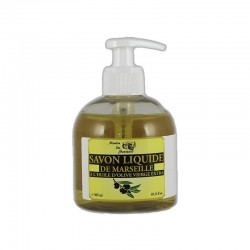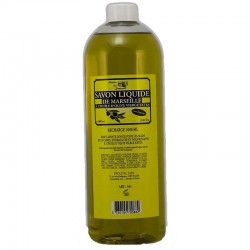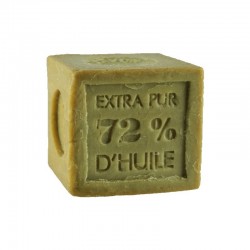
The Marseille Soap nowadays.
Marseille Soap: Between Tradition and Controversies in the Current Industry
Marseille Soap, a jewel of French well-being heritage, embodies much more than a simple cleanliness product.
For centuries, it has held a prominent place in daily body care rituals, while proving to be an essential ally for household maintenance and laundry washing.
Its history is filled with anecdotes, popular beliefs, and health successes, such as its contribution to the reduction of infant mortality in the 19th century.
However, behind the image of a traditional product lies a complex and sometimes controversial reality.
The designation "Marseille Soap" sparks debates, with a regulatory framework defined by the French Association of Detergency, Maintenance, and Industrial Hygiene Products (AFISE).
This code, approved by the General Directorate for Competition, Consumer Affairs, and Fraud Control (DGCCRF), aims to preserve authentic manufacturing methods while paving the way for a variety of soaps from different origins.
In this article, we will delve into the world of Marseille Soap, exploring its daily use, manufacturing process, and the contemporary challenges the industry faces.
Between tradition and modernity, Marseille Soap remains a fascinating study object, revealing the complex issues of preserving artisanal heritage in a globalized context.
Section 1: Traditional Uses and Benefits
The use of Marseille Soap in hygiene practices dates back several centuries, making it essential for body cleansing, handwashing, and facial care.
In the 19th century, this soap played a crucial role in reducing infant mortality.
Thanks to its antibacterial properties, it contributed to improving sanitary conditions, becoming a symbol of cleanliness and health.
The simplicity of its natural ingredients made it a preferred choice for the delicate skin of babies and allergic individuals.
Thus, Marseille Soap, beyond its daily utility, has left a mark on the history of hygiene by contributing to significant advances in public health.
Marseille Soap, an ancestral choice, offers an ideal hypoallergenic solution for sensitive skin.
Its minimalist and authentic composition makes it a natural ally for fabrics, preserving the freshness of textiles while effectively acting as an anti-moth agent.
Choosing Marseille Soap means opting for a traditional approach that respects your skin and textiles, a pure and beneficial alternative.
Section 2: Authentic Manufacturing and the Marseille Soap Code
Marseille Soap owes its reputation to an authentic manufacturing process, strictly approved by the DGCCRF. This process, in compliance with the "Marseille Soap code" defined by AFISE, emphasizes rigorous criteria, including the so-called "Marseille" saponification method.
Since its approval in March 2003, this code embodies a commitment to quality, ensuring the production of authentic soap and perpetuating a tradition centuries old.
The Marseille Process
The Marseille process is a discontinuous soap manufacturing process consisting of several steps:
1. Mixing and Scrubbing:
- Simultaneous introduction of fats (olive pomace) and soda into a cauldron.
- Heating the mixture to 120 °C to initiate the saponification reaction.
- Use of a soap base from a previous production to form an emulsion between oil and water phases.
2. Cooking:
- Addition of soda for a complete reaction of fats.
- Cooking the paste for several hours.
3. Release:
- Cleaning the paste with saltwater to eliminate excess soda.
- Use of a saturated solution of sodium chloride to recover the precipitated soap.
4. Liquidation:
- Resting the paste, followed by a water wash.
5. Pouring and Drying:
- Pouring the fluid paste into molds.
- Drying the wet soap to harden it.
6. Cutting and Stamping:
- Cutting the solidified soap into cubes.
- Stamping the soap, traditionally with an imprint indicating a 72% olive oil content, derived from olive oil and associated fatty acids.
The process results in a Marseille soap devoid of lipids, free of soda, other oil impurities, and glycerin.
The final soap is characterized by its stamp indicating the specific proportion of olive oil.
Section 3: True Artisanal Soap Factories in Provence
True artisanal soap factories in Provence are strategically located, thus perpetuating the tradition of Marseille Soap in the heart of this iconic region.
Among them, la Savonnerie du Fer à Cheval, located in the Saint-Barthélémy district of Marseille, remains one of the oldest soap factories in the region.
La Savonnerie du Midi, on the other hand, is situated in the Aygalades district, also in Marseille.
In Sainte-Marthe, la Savonnerie le Sérail continues this ancestral know-how.
As for Rampal Latour, this artisanal soap factory is based in Salon-de-Provence, adding its unique contribution to Marseille Soap production.
Finally, la Savonnerie Marius Fabre, another industry icon, is located in Salon-de-Provence as well, offering visitors and consumers privileged access to these authentic establishments.
These specific locations add a geographical dimension to the history of these soap factories, reinforcing their connection to the rich Provençal heritage.
Conclusion
Marseille Soap, a symbol of cleanliness and history, navigates between tradition and modernity.
Its unique properties, authentic process, and artisanal soap factories preserve a centuries-old heritage in a constantly changing world.


